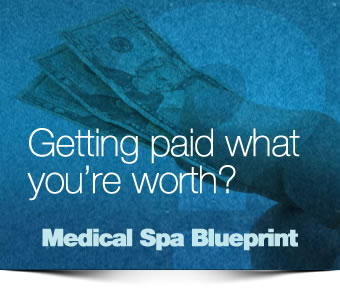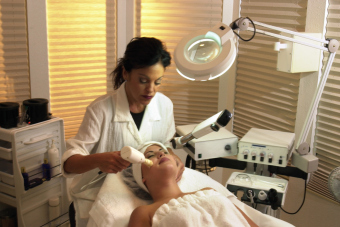 Are you getting paid what you're worth?
Are you getting paid what you're worth?
In reading through the comments on my post "Are Groupon Deals Killing Your Medical Spa?" it's obvious that there are some very strong feelings about pricing, Groupon, and the prices that some clinics are able to charge, or not.
Then there's any number of discussion forums on Medspa MD where you'll find a common thread around dissatisfaction with what someone's making as an employee, from the physician owner to the staff.
At the core, it's really around the perception of value on the part of the buyer, whether the buyer is a patient looking for Botox, or an employer that's staffing a clinic.
Here's what technologist Seth Godin has to say about value and what you're worth:
If you’re not getting paid what you’re worth, there are only two possible reasons:
1. People don’t know what you’re worth, or
2. You’re not (currently) worth as much as you believe
The first situation can’t happen unless you permit it to. If you’re undervalued, then you have a communication problem, one that you can solve by telling accurate stories that resonate.
Far more likely, though, is the second problem. If there are reasonable substitutes for your work, and those substitutes are seen as cheaper, then you’re not going to get the work. 'Worth' in this case means, "what does it cost to get something like that if something like that is what I want?"
A cheaper substitute might mean buying nothing. Personal coaches, for example, usually sell against this alternative. It’s not a matter of finding a cheaper coach, it’s more about having no coach at all. Same with live music. People don't go to cheaper concerts, they just don't value the concert enough to go at all.
And so we often find ourselves stuck, matching the other guy's price, or worse, racing to the bottom to be cheaper. Cheaper is the last refuge of the marketer unable to invent a better product and tell a better story.
The goal, no matter what you sell, is to be seen as irreplaceable, essential and priceless. If you are all three, then you have pricing power. When the price charged is up to you, when you have the power to set the price, there is a line out the door and you can use pricing as a signaling mechanism, not merely a way to make a living.
Of course, the realization of what it takes to create value might break your heart, because it means you have to specialize, take risks, create art, leave a positive impact and adopt generosity in all you do. It means you have to develop extraordinary expertise and that you are almost always hanging way out of the boat, about to fall out.
The pricing power position in the market is coveted and valuable... The ability to have the power to set a price is at the heart of what it means to do business profitably, so of course there is a never-ending competition for pricing power.
The curse of the internet is that it provides competitive information, which makes pricing power ever more difficult to exercise. On the other hand, the benefit of the internet is that once you have it, the list of people who want to pay for your irreplaceable, essential and priceless contribution will get even longer.
So the real question to ask yourself is if you're really irreplacable and essential as a business or as an employee.
For medical spas or clinics this means that your offering is not comoditized and that you're offering is not /can't be replicated.
Unfortunately, most clinics seem to tag along with a t me-too idiology that seeks to find what others are doing that makes money, and then offer the same thing at a reduced rate. (The Groupon rush is just one indication of that.)
Making your services irreplacable and unique will go a long way to giveing you pricing power.
Related Posts
Groupon: Are Groupon Deals Killing Your Medical Spa?
Pricing: Pricing, Cognative Dissonance & How To Charge More
 It's true, medical devices are used by Estheticians.
It's true, medical devices are used by Estheticians.







